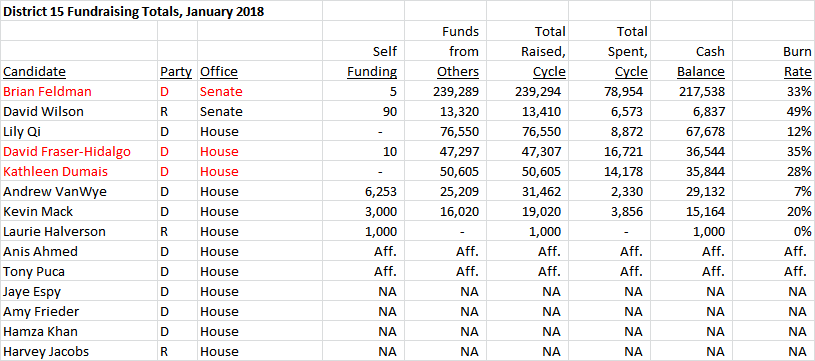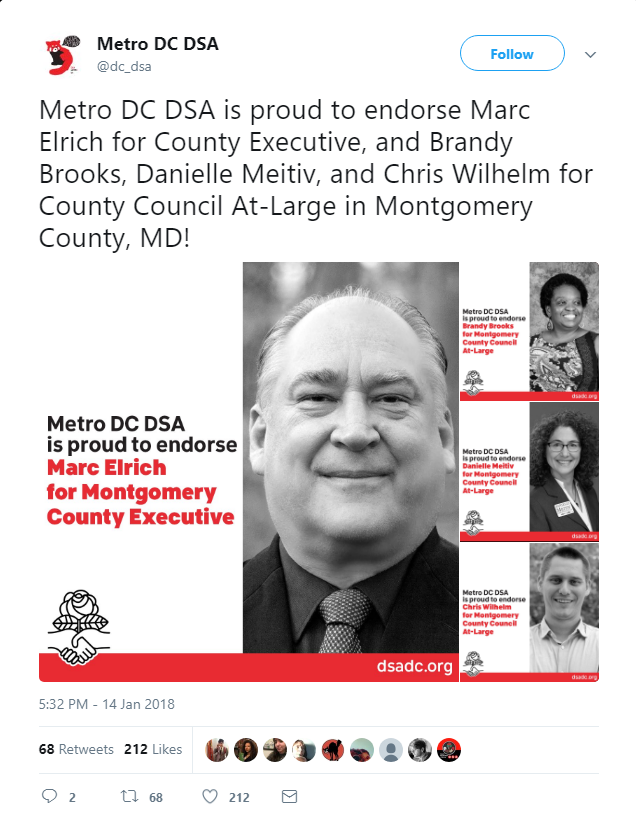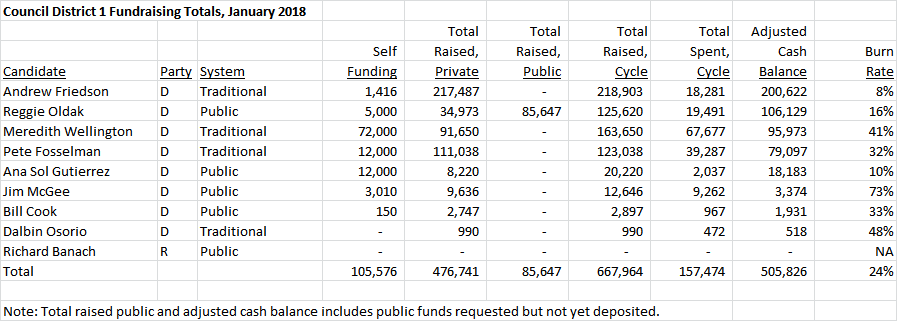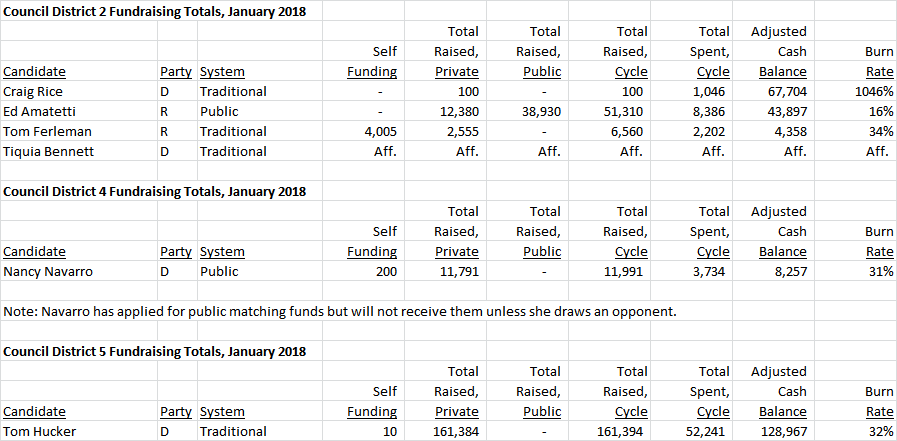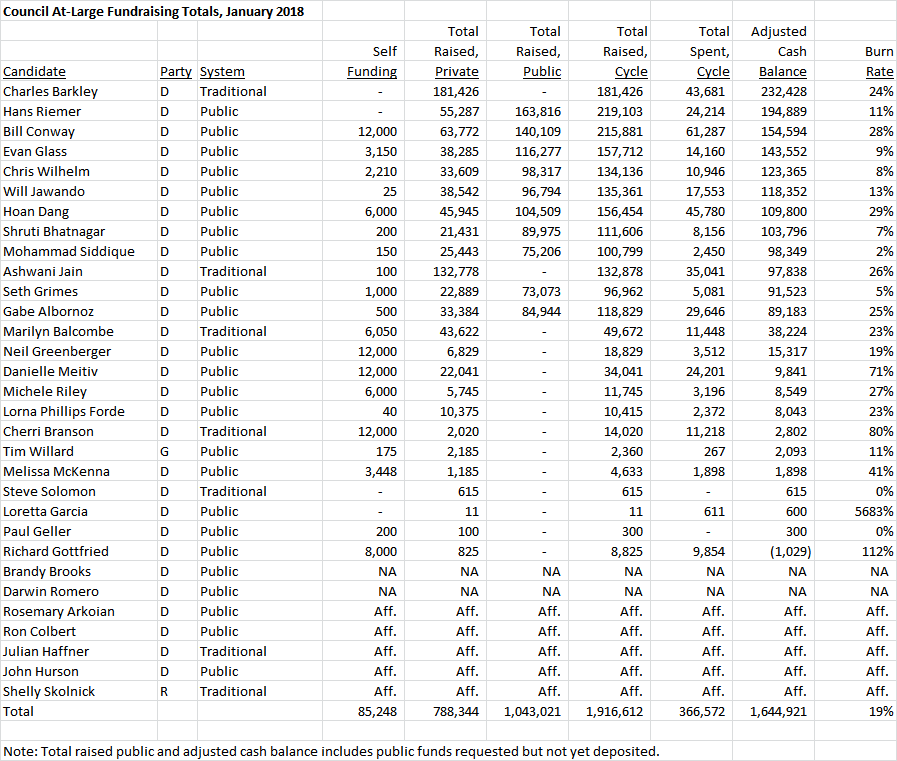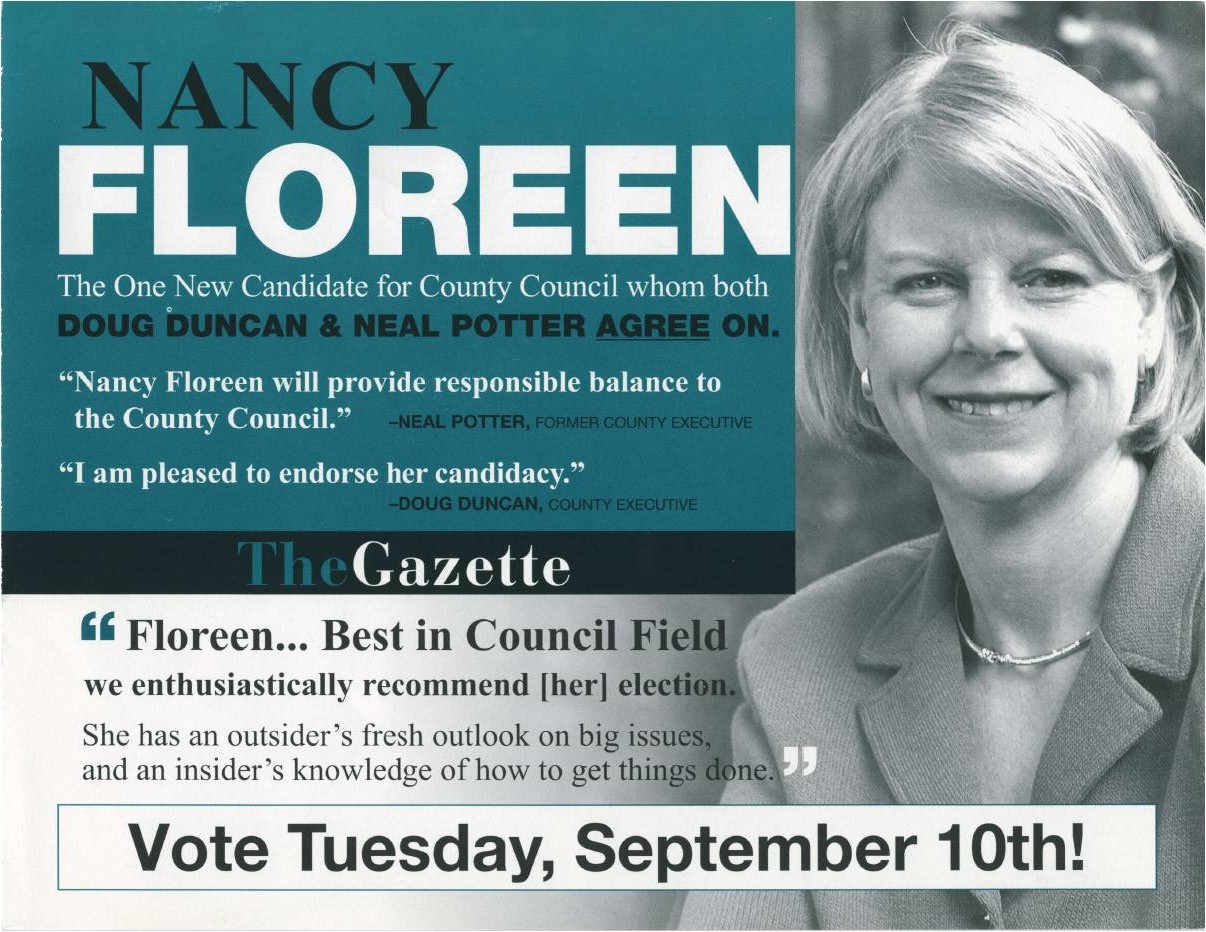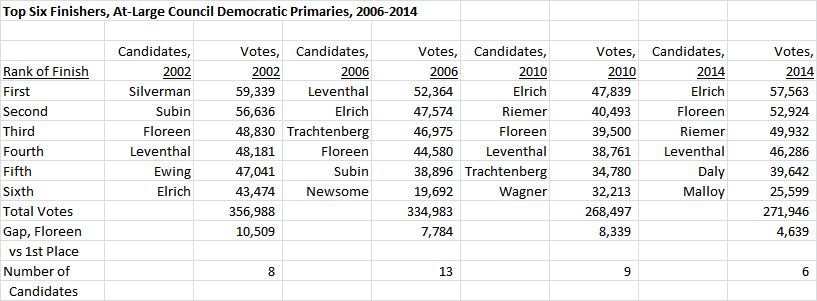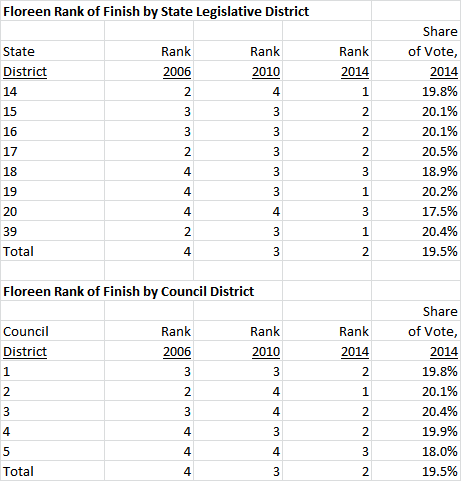By Adam Pagnucco.
Today kicks off a series of reports on fundraising in MoCo’s state legislative districts. Incumbents are marked in red.
District 14
This is by far the easiest MoCo state legislative race to figure out. All four incumbents – Senator Craig Zucker and Delegates Anne Kaiser, Eric Luedtke and Pam Queen – are going to be reelected. The end.
District 15
Senator Brian Feldman has achieved every politician’s dream: a complete deterrence of credible competition. Since he first won a House seat in 2002, he has never been at risk of losing an election. Meanwhile, four of his MoCo Senate colleagues (Cheryl Kagan, Rich Madaleno, Roger Manno and Nancy King) have endured tough races in recent years to gain or hold their seats. Will any serious candidate ever run against him? Of course, your author would be the first to sing Feldman’s praises as a public official and any challenger stupid enough to run would lose, but – dang it – Feldman is not doing his part to keep political bloggers busy!
Incumbent Delegates Kathleen Dumais and David Fraser-Hidalgo will be reelected despite their somewhat anemic fundraising. Of the candidates seeking to succeed Delegate Aruna Miller, who is running for Congress, Montgomery County Assistant Chief Administrative Officer Lily Qi looks like the strongest contender. Your author worked with Qi during his time in county government and found her to be smart, competent and forward-thinking. She was one of the uncommon people who could deal with the day-to-day tribulations of working for the county while also possessing the capacity to assume a perspective from 30,000 feet. Qi has done well at raising money, and with her standing in the local Chinese-American community, her admirers in the business community and the support of her boss, County Executive Ike Leggett, she has had a good start.
Kevin Mack, who is Congressman John Delaney’s constituent service lead, is well regarded by those who have interacted with him and is the principal alternative to Qi. But it’s not helpful that he trailed political consultant Andy VanWye in fundraising. Hamza Khan, who switched from the District 39 House race, has not yet filed his campaign finance report and is being fined by the Board of Elections. Republicans were once competitive in this district and held a Delegate seat here as recently as 2006, but they will not win any seats in the age of Trump.
The Big Question: will the incumbents slate with Qi as they slated with Miller, then a new candidate, in 2010? If they do, this race will probably be over.


